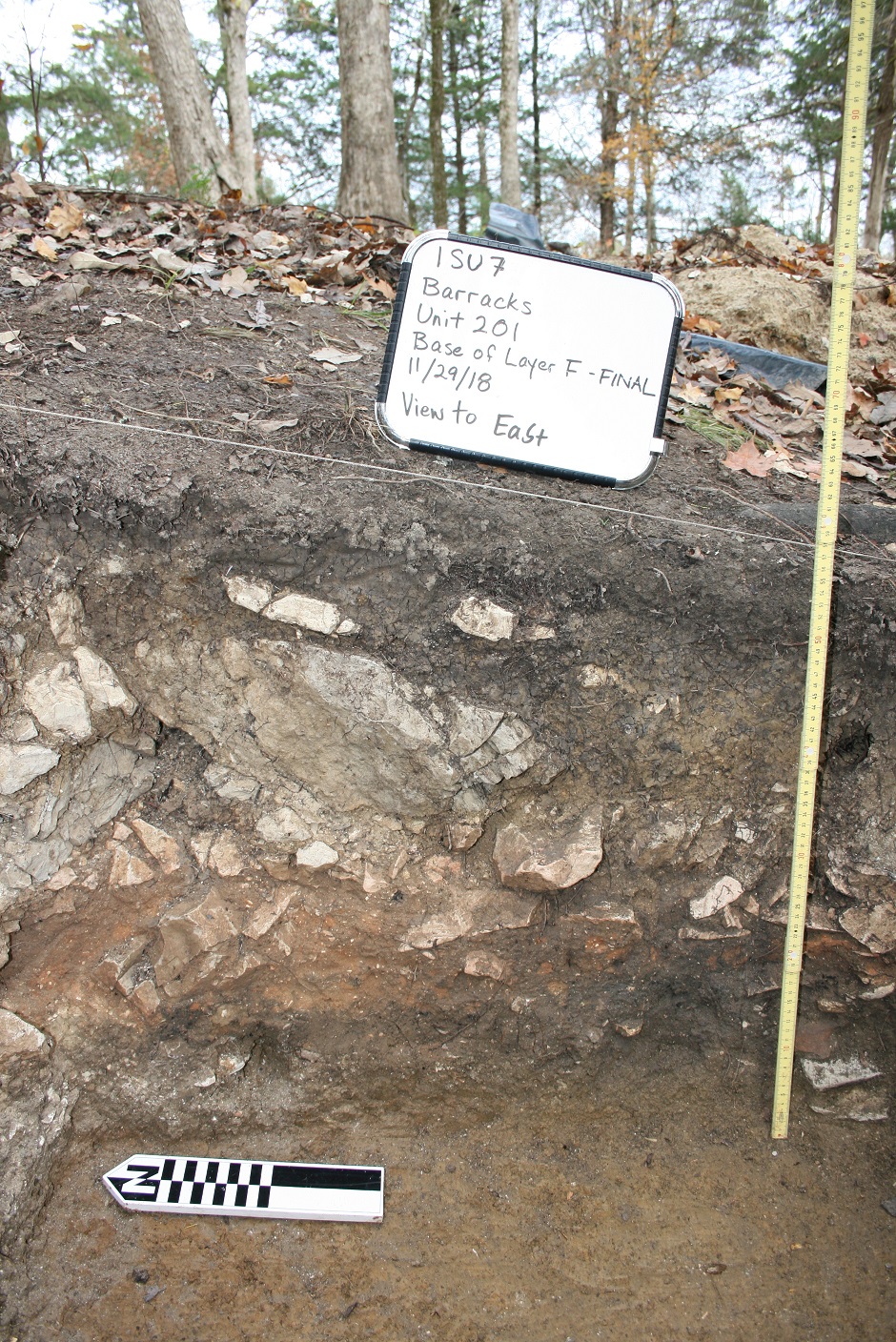Field blog post for November 27 and 29by Ashley Dumas
After the trip described for last week's blog, you might imagine how tired we are this week. But, this is a great group of dedicated students, and everyone showed up. Water had to be bailed out of the units, as Alabama received more rain (and even a bit of snow!) than Ireland did last week. Sparky's Unit 201 is still producing a bit of animal bone from the top few centimeters of clay. Using a 1-inch diameter soil corer, he demonstrated that there is an additional 28 cm of clay before the chalk bedrock. The clay is similar to the orangey brown clay we have now found pockets of across the site (see last year's field school blog, too). It is not naturally found on top of these chalk bluffs, and last year's discovery of swamp tupelo fruits mixed with the clay strongly suggests that it was brought in from somewhere else along the Tombigbee. One of the historic records from 1763 mentions that the French had been having a problem with erosion at the fort; perhaps hauling in clay was part of the solution? In any case, there are wide swaths of it, at least one meter across, in the area of the barracks. I don't intend to have the students excavate all of it from the units, because it is miserable digging, bears no artifacts, and would reward us only with bedrock beneath it. I think the few pieces of bone Sparky has recovered from the upper part of the clay were pressed into it and are not contemporary with it.

Unit 204, being troweled by Michael and Daniel, is also clayey, but it remains a darker brown color. A strip of slightly darker soil with bits of broken chalk runs along the south edge. This may prove to be a feature.
In Unit 212, Sarah has removed all of the Layer A topsoil and is now in Layer B, a dark grey midden soil. Just this afternoon, she has found multiple bone fragments, red-painted Choctaw pottery, and small (less than 2 cm) fragments of brick.
This is technically the last week of classes, but the gang said they want to work during finals week, too, so we have paced ourselves to finish next week.